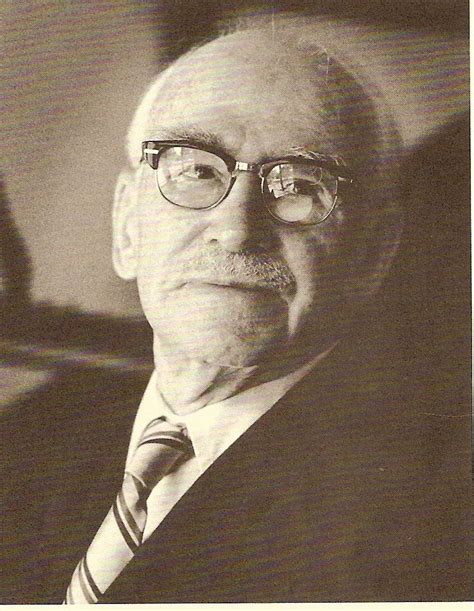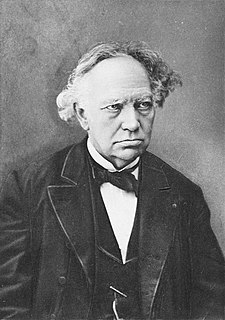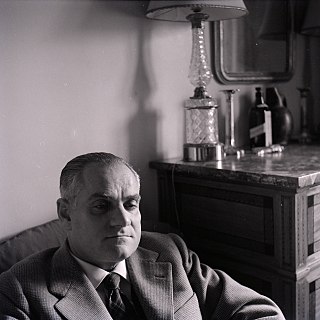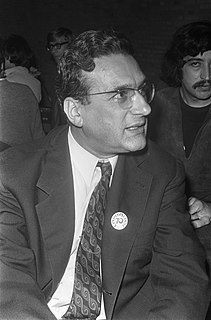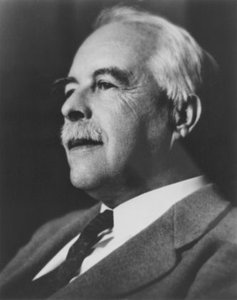A Quote by Lawrence Joseph Henderson
The concept of an independent system is a pure creation of the imagination. For no material system is or can ever be perfectly isolated from the rest of the world. Nevertheless it completes the mathematician's "blank form of a universe" without which his investigations are impossible. It enables him to introduce into his geometrical space, not only masses and configurations, but also physical structure and chemical composition. Just as Newton first conclusively showed that this is a world of masses, so Willard Gibbs first revealed it as a world of systems.
Quote Topics
Also
Blank
Chemical
Composition
Concept
Creation
Enables
Ever
First
Form
Him
His
Imagination
Impossible
Independent
Introduce
Investigations
Isolated
Just
Masses
Material
Mathematician
Nevertheless
Newton
Only
Perfectly
Physical
Pure
Rest
Revealed
Space
Structure
System
Systems
Universe
Which
Without
World
Related Quotes
I do not think that G. H. Hardy was talking nonsense when he insisted that the mathematician was discovering rather than creating, nor was it wholly nonsense for Kepler to exult that he was thinking God's thoughts after him. The world for me is a necessary system, and in the degree to which the thinker can surrender his thought to that system and follow it, he is in a sense participating in that which is timeless or eternal.
Step back in time; look closely at the child in the very arms of his mother; see the external world reflected for the first time in the yet unclear mirror of his understanding; study the first examples which strike his eyes; listen to the first words which arouse within him the slumbering power of thought; watch the first struggles which he has to undergo; only then will you comprehend the source of his prejudices, the habits, and the passions which are to rule his life. The entire man, so to speak, comes fully formed in the wrappings of his cradle.
I consider myself an inventor first and an entrepreneur second. In real life, my hero is Thomas Edison. He was a great inventor, but also an outstanding entrepreneur who was able to sell his inventions to the masses. He didn't just develop the light bulb; he invented the entire electric grid and power distribution system.
Utopianism also attempts to shape and dominate the individual by doing two things at once: it strips the individual of his uniqueness, making him indistinguishable from the multitudes that form what is commonly referred to as 'the masses,' but it simultaneously assigns him a group identity based on race, ethnicity, age, gender, income, etc., to highlight differences within the masses.
We're not in the physical world. The physical world is in us. We create the physical world when we perceive it, when we observe it. And also we create this experience in our imagination. And when I say "we," I don't mean the physical body or the brain, but a deeper domain of consciousness which conceives, governs, constructs and actually becomes everything that we call physical reality.
Photography is unlike any other art form. In the other arts there is always a continuous interplay between the artist and his art. He has the painting or sculpture before him. What we have tried to do is to provide a medium for "artistic expression" to anyone with only a reasonable amount of time. By giving him a camera system with which he need only control his selection of focus, composition and lighting, we free him to select the moment and to criticize immediately what he has done. We enable him to see what else he wants to do on the basis of what he has just learned.
It is only in his work that an artist can find reality and satisfaction, for the actual world is less intense than the world of his invention and consequently his life, without recourse to violent disorder, does not seem very substantial. The right condition for him is that in which his work in not only convenient but unavoidable.
How can we satisfy ourselves without going on in infinitum? And, after all, what satisfaction is there in that infinite progression? Let us remember the story of the Indian philosopher and his elephant. It was never more applicable than to the present subject. If the material world rests upon a similar ideal world, this ideal world must rest upon some other; and so on, without end. It were better, therefore, never to look beyond the present material world.
The system of fathers of the world church, the clergy system of the state church, and the pastoral system of the independent churches are all the same in nature. They are all Nicolaitans. In the Bible there are only brothers. There is the gift of a pastor, but no system of pastors. The pastoral system is man's tradition. If the children of God are not willing to return to the position of that in the beginning, no matter what they do, it will not be right.
The world of shapes, lines, curves, and solids is as varied as the world of numbers, and it is only our long-satisfied possession of Euclidean geometry that offers us the impression, or the illusion, that it has, that world, already been encompassed in a manageable intellectual structure. The lineaments of that structure are well known: as in the rest of life, something is given and something is gotten; but the logic behind those lineaments is apt to pass unnoticed, and it is the logic that controls the system.

